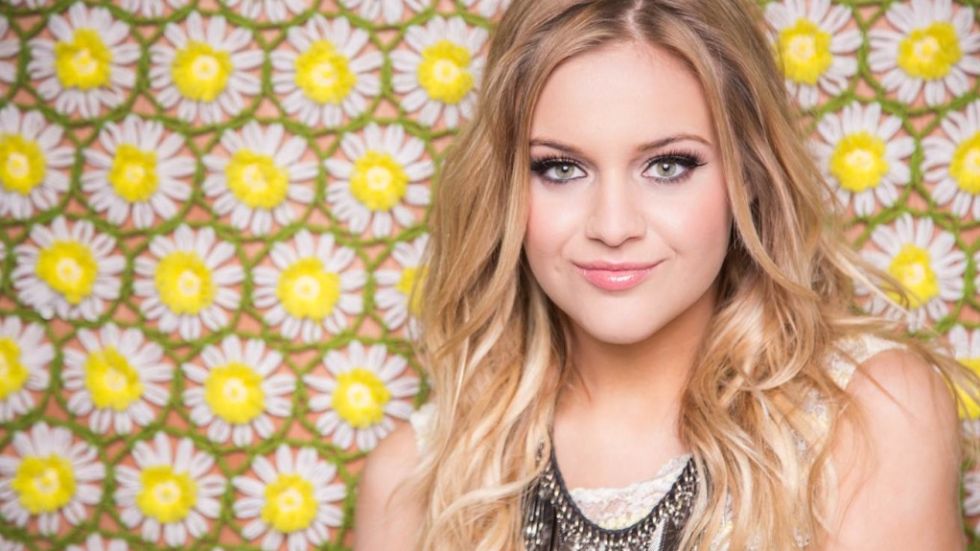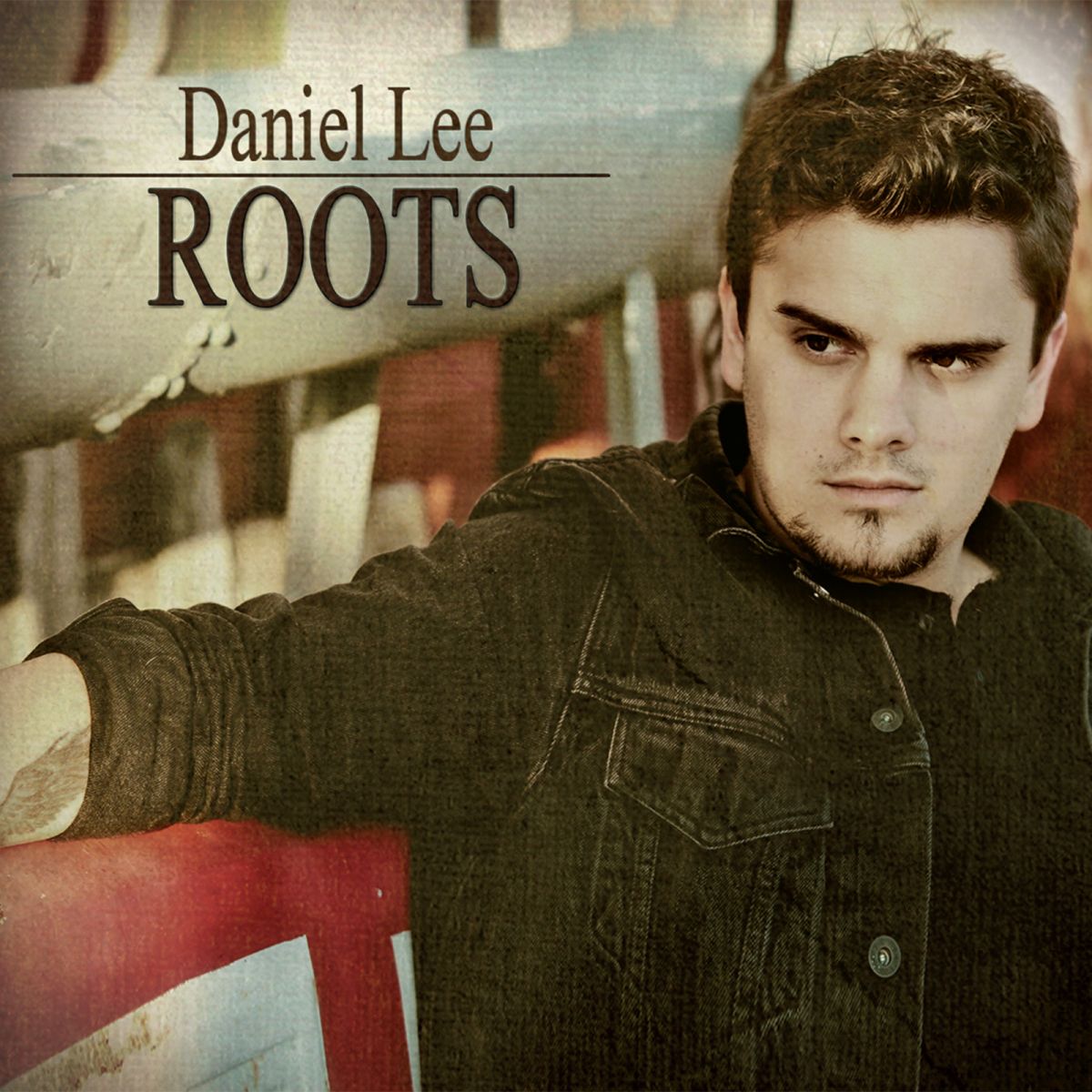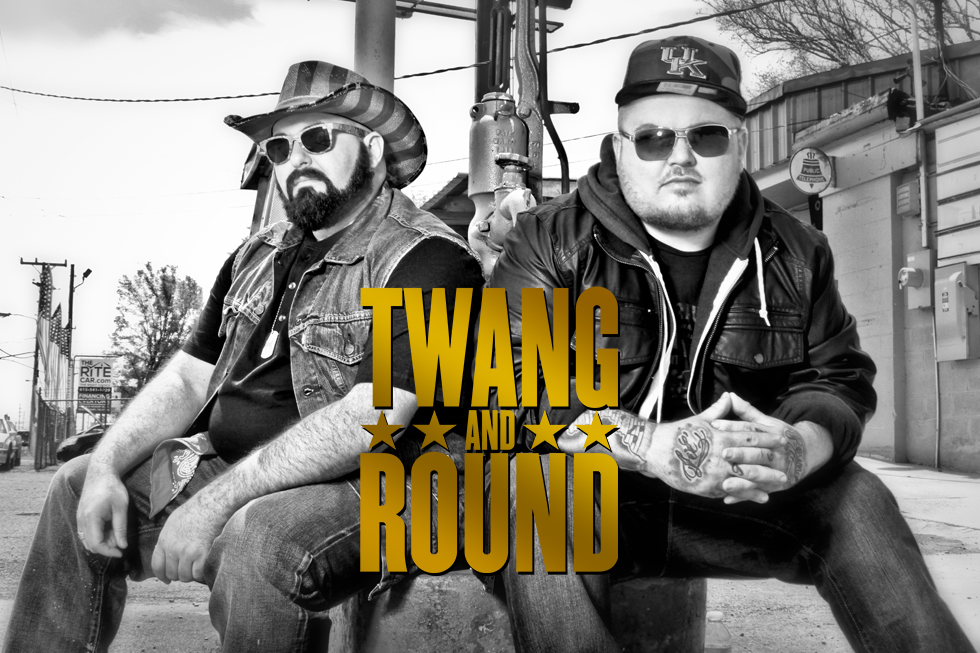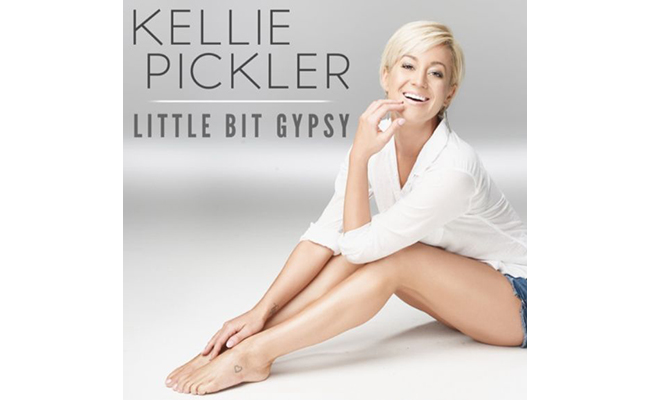Songwriters Circle: DeeAnn Dominy
13 years ago Liv Carter 3

When an interview is allowed to flow naturally, often a theme develops organically. When sitting down with singer-songwriter DeeAnn Dominy, again and again, the topic of conversation went back to a quality she embodies: honesty.
The reason for our get-together was her independently released (and brilliantly titled) album, Based on a True Story. With this collection of six true-to-life tales, Dominy is ready to show the world who she is as an artist. I set out to unravel who she is as a songwriter and this took me past authenticity, Miranda Lambert copycats, and roadtrips with cute guys, before heading off for a shot of tequila!
UCN: An obvious first question is always: what made you become a songwriter?
DeeAnn Dominy: I think it’s like ‘why be a runner?’, or whatever your outlet is in life. I couldn’t live without it. It’s the way I heal, it’s the way I express joy, it’s the way I walk through pain. It’s in my soul, it’s who I am. It’s just how I express myself.
UCN: When did you first start writing songs?
DD: I grew up singing to all the really authentic stuff like Johnny Cash and Tanya Tucker; real stories back when country was really story-oriented. I started writing right out of high-school. A boyfriend really pissed me off so I wrote a song about him! (laughs)
UCN: (laughs) That’ll do it!
DD: (laughs) It felt great and I made sure he heard it. So yeah, ever since then, my entire adult life, I’ve been a writer.
UCN: So there really was that one moment that was the catalyst?
DD: Yes, the song was ‘Just a Memory’ and it kind of sucked, but it basically said ‘you know what, you’re gone.’ It was liberating. Do you want to know where I wrote it? I was going to hair school and I was having to give out color all day. That’s one of the bad jobs you have to go through, sit in the back, mix color and give it. So I wrote the entire song sitting back there fuming over this guy. (laughs)
UCN: That was the first song you wrote but is it also the first song you’re proud of having written?
DD: I wouldn’t say I’m proud of that song! (laughs) I started writing really quick after that and I was a little more rock-oriented then. I wrote a song way back when called ‘Piece of Heaven’ and it was about a guy who was in the hospital. It was very spiritual; these two souls connect in a hospital. And I thought ‘wow, I can be deep.’ You can do that kind of thing and then you can get mad at someone, and then you can write a great love song. What this means is you can write about any and all emotion in life.
UCN: What I am hearing from you is that something real happened, and then a song was written about it. Do you need a referral point from real life?
DD: That’s my whole bag as an artist, that’s what I do. I have been privileged to be in the Music Row machinery and write for great companies with great writers who’ve brought me levels ahead of where I would have ever been. But my favorite thing to do is to write out of my own emotion and just my own experience. I don’t think I will ever write another song that I haven’t lived or haven’t been a part of. I really like where I’m at.
UCN: Real life isn’t a prerequisite for me in a song, real emotion is. It can be a completely made-up story, if it’s well-written, it’s well-written. But the songs that tend to really connect with me personally tend to be lyrics full of sense-bound language, which yours are. You include everything: seeing, hearing, taste, smell…
DD: Very cool. I never thought of it that way.
UCN: Is that because you write from your own experience or do you deliberately steer towards this?
DD: Not deliberate whatsoever. It’s all what I’m feeling, it’s just emotion. I don’t sit down and think ‘Hey, this might be good’ or ‘this might do well for this artist’, it’s just about an emotional experience I’m having at the time or have lived recently. That’s all I focus on when I write.
UCN: So there’s a filing cabinet in your memory of all your emotions to draw from?
DD: Yes!
UCN: How easy is it for you to access those emotions?
DD: It tends to be easier when you meet something now that relates to a memory. You can go ‘well, this experience makes me think of the time…’ and you can draw upon that. I don’t think I can sit and think about my life and go ‘in 7th grade that kid bullied me, I’ll go write a song about bullying.’ But if I felt bullied right now in some sense, it might take me there.
UCN: So you need that current moment to access the stored emotion.
DD: I need that. I know I’m different in that to a lot of writers. I’m a full-time working mom, I bust my butt, so my music is about my space and my emotion in everyday life.
UCN: One songwriter I know once said something I thought was interesting, in that he said he doesn’t always enjoy writing all that much because it forces him to access emotions he’d rather not re-live.
DD: Ooh, interesting!
UCN: Is that something that happens to you? Do you ever hesitate going back to a darker place, or do you welcome it because you know it’s a place from which you can write?
DD: I welcome it because I live in a strong mode, I live in an empowered mode. I do what I need to do to make things right for my kids and my life. So I welcome that. The album actually is pieces of a year and a half of my life. So I like that and I like being drawn into that. I think for me, even though I’m a woman, the strongest place I express my emotion is in my songs. That’s where I can pour it out, where I can say I’m scared of you or I hate you or I love you. It’s pretty easy, it’s not hard for me to go to it. And then I’ll always feel better once I’ve collected a song and the pieces that come to it. I also draw on someone else’s experience that might relate to mine.
UCN: I’ve been told that before, to the point of going to see a movie that they don’t necessarily want to see, but they know there’s a character in there they want to go look at, because they want that experience of that character.
DD: Yeah, it’s that. My song ‘I Still Believe’, that’s about my children. They were in a foster home in Columbia in South America. I adopted them at 8 and 10 years old. So that’s them sitting by the bedside going ‘I don’t care what you stupid kids say, somebody’s coming for me someday.’ That whole thing came off that. But the other verses aren’t my personal experience but people I know and love have experienced it, and it affected me. So it’s a case of joining my personal experience with theirs, but it has to mean something to me.
UCN: Do you get offered co-writes or can you decide who to work with?
DD: When I wrote for Starstruck and Warner/Chappell and stuff, I was lucky. I had pluggers who really believed in me and hooked me up with really great songwriters. So that’s killer. Right now, I’m writing with people that…it’s doesn’t matter to me what’s on your hit belt, but if you want to write something crazy and left of center, come on in! I’m writing with people who write what I think is authentic and it’s fun. It’s just kind of where I’m at.
UCN: What very specifically do you look for? Someone good with rhymes, or melody, something they have maybe you don’t so much?
DD: I just look for authentic. I look for people like Byron Hill. He’s been a mentor and he’s the real deal. Whether he’s lived it or not, it’s not important to me that they have the same philosophy that I do, but that what he writes is so relatable and so real, and almost simplistic. I like people that come from a real place. Melody versus lyrics, I’m lucky that I feel a little bit charged in both those areas. I want to write with people where you can just lay some emotion out on the table too.
UCN: I’ve always found it one of the most intriguing aspects of writing sessions, how personal they can get. Even if it’s a first writing appointment and they’re sharing extremely personal experiences. What do you attribute that to? Is it just what is necessary to be a writer?
DD: I think it has something to do with being a writer but it’s personality also,, and just a willingness to be open with people. I think we are so full in this town of people who are masters at that. And then you’re putting them with people who are new and we’re all morphing and turning the wheel.
UCN: Did you have to learn to open up?
DD: Oh yeah! I had to learn to co-write. When I moved to Nashville, and then especially getting signed at a big company and I’m like ‘oh my gosh, I’m with these big writers and I’m bringing in my little $200 guitar…’ I had a strategy in the beginning to help with my nerves. I’m an idea person so I just thought ‘bring a great idea’ and then learn how to do this. Watch and learn. That’s what I did.
UCN: Did you immediately feel comfortable offering up ideas? For example, I like the premise of ‘Love a Good Love Song.’ If you were in a session with these big writers, how comfortable were you walking in saying ‘I have this idea for a song about love songs’.
DD: Unless somebody came in strong with an idea, I would look at that as my ‘in’. I wouldn’t have a lot of track record on writing hit songs. So I’d say ‘I have three ideas here, they may suck, so it’s OK if you don’t like it.’ That’s what I felt I could bring to the table as a newbie. And you learn the art of crafting with another person through great people, and that’s definitely been my experience in Nashville.
UCN: In the early days, who were some of the people who encouraged and inspired you?
DD: Byron Hill is a big piece of that. I’ve written with Randy Scruggs, it was just great fun. Wynn Varble, there’s nobody crazier or more fun! Byron really hung with me and we wrote a lot. We got one that went #2 in Europe.
UCN: When you bring ideas, are they little shards of ideas or do you have fairly complete ideas like the idea plus some of the melody and maybe some phrases?
DD: That’s a great question. When I co-write, let’s say I bring in an idea, then the thing that happens next is discussion, more than anything else. Someone might be picking on the guitar which starts to puts a melody into it. ‘Love a Good Love Song’ is a good example. ‘What do you mean by you didn’t like a good love song?’ – ‘Well, I hated them, I thought they were stupid,’ and then it goes from there. When I write alone it’s different. I have experienced something and I go get my guitar. I may not have a melody or anything but the emotion is there. It’s the emotion that you don’t give up and then I’ll start strumming. So it’s a little bit more intimate when I write alone. I’m not a master at co-writing, it’s an idea and a discussion, and the song can start lyrically or melodically.
UCN: How technical do you get about writing? There are some clever rhymes and rhyming schemes on this CD. Do you sit there trying for that, or does it just come out as what the song wants. Do you sit there counting syllables?
DD: I never count syllables. That’s a great question, no one’s ever asked me that. Because I write with writers that do count them. I don’t and my personal favorite songs I’ve written, I usually wrote alone. ‘Love a Good Love Song,’ I wrote from Pleasant View to Green Hills in my car. It just hit me. I may have tweaked a little in the next couple of days, you know, that line would sound better there, but I wrote that in an hour. It’s being involved in a moment, in an emotion. Then I’ll tweak it but I never deal with syllables, I don’t think about it too much.
UCN: It’s something I’ve been thinking about because I’ve been listening a lot to Maroon 5 and Adam Levine’s lyrics.
DD: He’s back! (laughs)
UCN: He’ll often have lines which may be three syllables too many or too few but he’ll still do it, and then he’ll change his phrasing to match and maybe even lift out a vowel. Is it ‘this is the word I want and I’ll make it fit?’
DD: You know what I found with that, since I’m an artist and sing it all, in my mind it’s phrasing it where it needs to be. But I’m like Willie Nelson, I may not sing it twice the same, and I don’t care. But when someone else is recording it, especially in the Nashville community, then I might have to go back and really pay attention to that.
UCN: How is it for you when you have a song that’s kind of flexible and someone records it and it’s not quite what you were going for?
DD: That hasn’t happened to me on a grand level yet but I’m such a believer in artistic expression that I want the artists to make it work for them. If I do a cover, I wouldn’t want somebody to go ‘and your interpretation should be…’ I would have faith in the artist’s interpretation.
UCN: Do you mind being re-written in a sense? For example, when you hear Dave Pahanish sing ‘Without You’ there’s a few words different than what Keith Urban ended up recording. I wonder if writers mind being re-written. Maybe the words Pahanish wrote feel uncomfortable to Urban to sing. Does that fall in artistic freedom?
DD: I think for me the difference would be if you are interviewing an artist-songwriter or a songwriter. For me, I still think I would go back to artist interpretation. But if you take my song ‘Daddy Went to Prison’ and you don’t kill him in the end, I’m not going to like that because that’s the whole concept of the song. But if you change a word here and there, it doesn’t bother me. I want the artist to make it the vehicle they want it to be. As long as it doesn’t change the content. An actual professional, top-notch songwriter may feel differently, but being an artist as well, that’s how I view it.
UCN: Because the person performing it needs to be comfortable with it.
DD: Yes, they need to be able to deliver the song. I’m sure you know that once a song is cut, anybody can cut it. Even if it’s not your favorite version, I look at it as a vessel to get exposure for it. It can be cut a million different ways. If someone wanted to cut one of my songs as bluegrass, OK, as long as the content and emotionality remains the same.
UCN: The process of getting songs cut, with songs being put on hold and the whole back-and-forth, it can be frustrating. If someone puts a hold on a song and someone else is interested, you end up being a sales person and negotiator. How does that feel to a creative person?
DD: When I was writing for Starstruck, I had no control over that. It can get frustrating if the hold lasts a long time. Now, I own my rights and I think that’s the direction we’re heading into, even for writers much bigger than myself. People are holding on to their publishing to have more control over that. For movie soundstracks, they’re not going to touch even a famous writer’s material without them owning some of the rights.
UCN: Once a song is cut it’s anybody’s, so to get that cut, is it almost like ‘anybody just please cut it, whoever, just do it’ so you can then send it out to maybe the people you really want?
DD: Yes, it’s that plus just the exposure, anybody can go pick it up. For example, Byron and I wrote a song ‘Once You’ve Been to the Moon,’ he charted it in Europe, him as an artist. It did well and for the last while, Tony Bennett has it on hold. So I don’t know he would have heard that if it hadn’t been for Byron cutting it. I mean, the ideal thing is to write a song, have Miranda Lambert pick it up, make it a smash hit and you’re done! (laughs)
UCN: (laughs) And then you can go sit in the Bahamas with a cocktail in your hand!
DD: Yeah, and your next song you write next to the waves. (laughs) Again, I’m not every day bread and butter that way. Maybe someone who totally lives the songwriter life day in and day out might feel different about that. I say a cut is a cut. As long as you emotionally express the song and believe in it. And most artists don’t cut songs they don’t believe in.
UCN: Well…one would hope.
DD: Yeah, you’d hope.
UCN: Because there’s a few people I’d probably have reservations about…
DD: (laughs) Oh man, yeah!
UCN: Well, I’m not sure it’s not believing in it, but they seem to cut the songs which they think will sell. And that’s not necessarily wrong. And for someone who’s a singer, not a writer, it’s often their record company who select the songs anyway.
DD: You’re right. I like the Miranda Lamberts of this world because of that. I’m a huge fan. She writes her stuff and it’s really authentic to me. I buy into everything she sings, she makes you believe her. I believe she’d really shoot me if I pissed her off! (laughs) I think there’s more of that coming down the pipe than there used to be. I’m also a big fan of Frank Liddell, her producer. From the few meetings I’ve had with him, I think he really encourages artists to be themselves and to do what you know. He tries to get players to meet where the artist is at.
UCN: That goes back to the authenticity thing we were talking about earlier.
DD: Right. Someone’s going to identify with it, you know. If you just write what you know… ‘The House that Built Me’ is a good example. I don’t know their story but I’m sure it’s by guys who have real emotion over their childhood home. If not, they’re real master creators!
UCN: Well, Allen Shamblin and Tom Douglas…yeah, they know how to write a song.
DD: Is that who it was? I couldn’t remember. Yeah, they obviously are masters at this!
UCN: A writer here in town, Rick Huckaby, has a song called ‘Saving Savannah’, written with Michael White. The first time I heard it, I wondered if there was a big personal story there but turns out it’s made-up.
DD: Wow. See, I love that!
UCN: It’s about a brother who goes above and beyond to save his sister who has run into trouble, and it’s this really great, heart-felt story. But then a while after we met he goes ‘I don’t even have a sister.’
DD: Now, see, that’s a true, honest songwriter who can do that to you. That’s a masterful crafting writer, and they are out there! I need to go listen to it.
UCN: I’ll hook you up with it. Speaking of story-songs, where did ‘Daddy Went to Prison’ come from?
DD: I’ve developed a set answer to that and it’s ‘Hell hath no fury like a woman scorned!’ (laughs) But it goes with the album title, Based on a True Story.
UCN: And I really feel that about this album. All six songs make me feel they’re by someone who connected with a specific event and has the ability to sit there are express and craft this.
DD: And obviously, I haven’t offed anybody yet, but I’m sure I could! (laughs)
UCN: (laughs) That’s often the way into a story – the ‘what if’. Saying I haven’t actually done this but what if I was in this situation.
DD: And then what would I do when I got there.
UCN: Do you ever create characters for songs? When it’s not you having experienced what’s in the song, but you’ve created a character and she has been through it.
DD: Definitely in my co-writing days, I did that more. Or a writer brought in something they created and you absorb around that.
UCN: One of the themes in a previous interview with Joe Hand was do you do what you do to make art, or do you do it to make money? And if you do it to make money, is it still art? And if it’s for the art, is it OK to make money?
DD: That’s a great one! That’s a really good point.
UCN: There’s this romantic image of the starving artist somehow being more real than the Craig Wiseman-type hit writer. I actually really like his material so I don’t want this to be misinterpreted. I like what they do and they happen to make money doing it. Where are you on that?
DD: My answer goes back to my own personal artistry. There was a time when I did it just to create. Music just embodies me, and making money would be a great thing. It was about making a career out of music. My life journey has now come to it being just about music, to do what I do, say what I want to say. I hope someone identifies with it, I don’t want it to can. My thing is just to make authentic music and I don’t even care about genres. I know that’s taboo but I don’t care if this song’s country, or country-rock or just rock. I think you write what you write and let the chips fall where they may.
UCN: The genre thing is interesting to me. A few days ago I said I had a song stuck in my head, someone asks what is it, it’s Maroon 5 – ‘oh really, I didn’t know you liked them because I know you listen to country.’
DD: Yeah, so?
UCN: Exactly. I grew up with Aerosmith and AC/DC.
DD: Well, you’ll never guess who my favorite act right now is. I’m a Kid Rock fan. Play some Kid Rock, crank it up, I love it! It’s not what I do as an artist but I love it. Genres are silly, I think.
UCN: And what is it about that music then, because I then had to answer that question about Maroon 5 and I think our answers are probably going to be similar.
DD: It’s so real! He says stuff that’s so real. He’s authentic. He belts out a song about partying and then he comes back and does something really spiritual. I find him fascinating. And really real.
UCN: Which is indeed what I said too! (laughs) I said ‘Have you listened to Levine’s lyrics? How honest he is?’ Because he knows he’s often not coming off as a nice guy there but he still goes ‘this is what I’m feeling and if this is offensive to anyone, I don’t care.’ His ability to do that is what draws me in.
DD: Exactly, it’s the honesty. I was recently asked ‘who are your favorite artists?’ and I put ‘any that were the first of their kind.’ Like Elvis. Is he my favorite artist? No, but he was so into what he did, there’s never going to be anyone else like him, or like Kid Rock. I don’t think there’s ever going to be another Johnny Cash, or Tammy Wynette, or even another Maroon 5, because they all are the first of their kind. That to me is what’s cool. And I think Miranda Lambert is also pretty much the first of her kind which is neat to see that happen in today’s market.
UCN: But then, when that happens do you expect…
DD: 500 copycats?
UCN: Exactly.
DD: Oh yeah, there’s gonna be all kinds of pretty blonde “Mirandas”! Absolutely there will be. But you’ll find there won’t be any as good as her because you can’t be a good copy. You can only be your best whoever you are. But that’s the money-making wheel of the world, I guess.
UCN: Which brings us back to that question of art versus making the money. The debate with Joe was about artistic integrity and how much are you willing to surrender to get that hit.
DD: For me, hell no, at this point, but there’s a time and a place for that. There’s people who just songwrite and that’s their craft. So they’ll probably have a completely different answer. But for me, I’m not going to write anything that doesn’t mean something to me. This is my first independent record and I’m finding I’m getting more positive reactions and building more of a fan-base than when I did when I was doing it the other way. It’s interesting if you’re just who you are… But you have to have some amount of skill, of course.
UCN: How are you on “universal” lyrics? LoCash Cowboys told me they used to want to write that way but no longer do. They have a song called ‘September’, about losing a loved one in September and they told me they knew they had it right when someone came up to them and said “February is my September”.
DD: Wow, that’s big. That gave me chills…
UCN: Yes, it’s great. Having this piece which you created connect with somebody to that extent – that on it’s own must be amazing – but it’s a really good example of being honest and real, and then someone will connect with it. Maybe the person they lost didn’t die in September but they still connect with the emotion.
DD: No doubt about it! And again, like ‘The House that Built Me’, you may not have played guitar up in a room, but you still relate to the emotion in the song. They made the song personal to them, but fans still connected with the emotion.
UCN: And even when you know a song is written for a specific person, or mentions a specific name, you can still connect with it, provided it’s well-written.
DD: Absolutely! Like ‘Me and Bobby McGhee’. Do you know a Bobby McGhee? No, but have you been on the road before with a cute guy and had a great time?
UCN: Heck yeah! (laughs)
DD: Of course! (laughs) And that’s where the song takes you. His name didn’t have to be Bobby. That’s the beauty of it. I think the personal aspect of it is what people relate to.
UCN: The first time I interview someone, this is always my question to end with: what quote or saying inspires you day to day?
DD: (pauses) Well, it’s not ‘cool’ but I live by this phrase: I never met a problem a shot of tequila couldn’t solve. (laughs) I’m sorry, if we’re gonna be real…
UCN: Yeah, we’re just being honest here. (laughs)
DD: I’m just saying, even the worst things – and I’ve been through some stuff – even the worst things, a shot of tequila is just a symbol there. In other words, even the worst things, we all live on, we all keep moving on.
UCN: This was really interesting, thank you!
DD: Thank you!
And now for that shot of tequila…
Copyright ©2011 Urban Country News. All rights reserved. This material may not be published, broadcast, rewritten, displayed or redistributed for any purpose without permission from Urban Country News.
Liv Carter
She holds several certificates from Berklee College of Music, and a certificate in Positive Psychology from UC Berkeley.
Her main influences are coffee, cats, and Alexander Hamilton.
Latest posts by Liv Carter (see all)
- Well yes, racism, but it’s more complicated - February 13, 2017
- Black River Entertainment had a great reason to party! - October 25, 2016
- Keith Urban returns to the States for US arena leg of his “ripCORD WORLD TOUR 2016” - October 10, 2016




